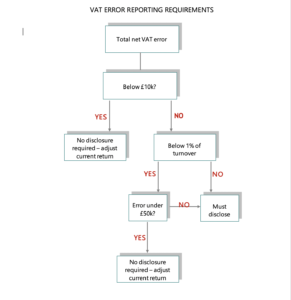I have looked at the Default Surcharge regime in detail here but as statistics show more business to be in default (which is probably accurately attributable, inter alia, to the pandemic) I consider how a penalty may be mitigated, by the provision of a “Reasonable Excuse”. HMRC has updated its internal guidance on Reasonable Excuse this month.
Specifically: HMRC state that “…where a person has not been able to meet an obligation on time due to the impact of COVID-19, HMRC will usually accept that they will have a reasonable excuse.”
What is a Default Surcharge?
The Default Surcharge is a civil penalty issued by HMRC to encourage businesses to submit their VAT returns and pay the tax due on time.
A default occurs if HMRC has not received your return and all the VAT due by the due date. The relevant date is the date that cleared funds reach HMRC’s bank account. If the due date is not a working day, payment must be received on the last preceding working day.
More on late returns here and on late payments here.
New rules forthcoming
It is noted that there is a new regime for penalties, details here although these changes have been delayed until 1 January 2023
Reasonable Excuse
If a business has a reasonable excuse for failing to pay on time, and it remedies this failure without unreasonable delay after the excuse ends, it will not be liable to a surcharge. The onus is on a business to satisfy HMRC that it has a Reasonable Excuse.
Definition
There’s no statutory definition of Reasonable Excuse and it will depend on the particular circumstances of a case. A Reasonable Excuse is something that prevented the business meeting a tax obligation on time which it took reasonable care to meet. There is a great deal of case law on this particular issue. Please contact us should there be doubt about a Reasonable Excuse.
What may count as a Reasonable Excuse?
HMRC give the following examples:
- “your partner or another close relative died shortly before the tax return or payment deadline
- you had an unexpected stay in hospital that prevented you from dealing with your tax affairs
- you had a serious or life-threatening illness
- your computer or software failed just before or while you were preparing your online return
- service issues with HMRC online services
- a fire, flood or theft prevented you from completing your tax return
- postal delays that you could not have predicted
- delays related to a disability (including mental health) you have”
This list is not exhaustive.
What is NOT a reasonable excuse
Statute identifies two specific situations that are not a reasonable excuse:
- lack of funds to pay any VAT due, or
- reliance on any other person to perform a task, where there has been a delay or inaccuracy on that person’s part.
There can be exceptions to these two exclusions. For example, an insufficiency of funds may be a reasonable excuse where the insufficiency is a result of events outside the person’s control.
HMRC also states that these situations would not normally be accepted, on their own, as a reasonable excuse:
- pressure of work
- lack of information
- lack of a reminder from HMRC
Facts
HMRC will establish what facts the business believes gave rise to a Reasonable Excuse. The facts may include:
- the taxpayer’s beliefs
- the taxpayer’s own experiences and relevant attributes
- the situation of the taxpayer at any relevant time
- acts carried out by the taxpayer or someone else
- acts that the taxpayer or someone else should have carried out but did not.
Case Law
Although not a VAT issue, in the Upper Tribunal (UT) case of Christine Perrin [2018] UKUT 156 [TC], the judge provided guidance on how the Tribunal should approach a Reasonable Excuse defence. There are four steps:
- establish what facts the taxpayer asserts give rise to a reasonable excuse
- decide which of those facts are proven
- if those proven facts amount to an objectively reasonable excuse for the default
- having decided when any reasonable excuse ceased, decide whether the taxpayer remedied the failure without unreasonable delay after that time
Appeal
If HMRC refuse to accept an advance of a Reasonable Excuse and the Default Surcharge is maintained, there are two potential remedies:
If a business disagrees with a decision that it is liable to a surcharge or how the amount of surcharge has been calculated, it is possible to:
- ask HMRC to review your case (A Statutory Review)
- have your case heard by the Tax Tribunal
If you ask for a review of a case, a business will be required to write to HMRC within 30 days of the date the Surcharge Liability Notice Extension (SLNE) was sent. The letter should give the reasons why a business disagrees with the decision.
We are able to assist with all disputes with HMRC and have an enviable record of succeeding in having Default Surcharges removed.

